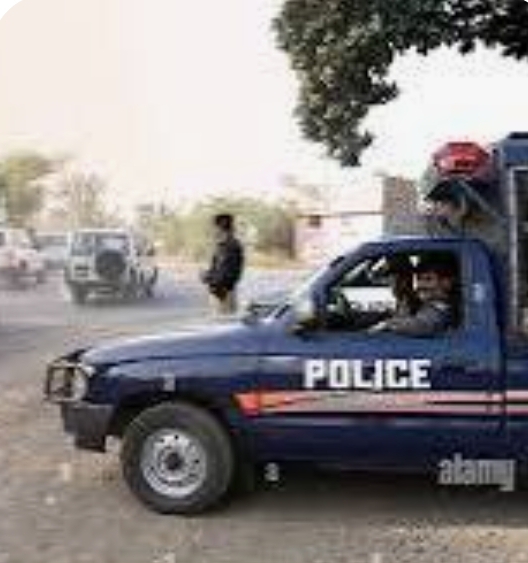A mob in Edo State, Nigeria, killed at least 16 hunters, accusing them of kidnapping despite their denials. The victims were returning from a hunting trip, carrying tools, when they were wrongly accused. President Tinubu condemned the attack, ordered an investigation, and vowed justice. Amnesty International criticized vigilante violence, and experts called for stronger legal action against mob justice. The police have arrested 14 suspects and pledged to enforce the law.
Nigeria Mob Action: Killing of Travelers in Edo State Sparks Outrage


The killing of at least 16 traveling hunters by a mob in the southern Nigerian state of Edo has sparked widespread outrage and once again raises serious concerns about the prevalence of "jungle justice" in Nigeria, as well as whether sufficient efforts are being made to address this issue in the country. The victims were returning home on Thursday from Port-Harcourt, a southern city, to Kano in the north to celebrate the Muslim festival of Eid al-Fitr with their families, when a group of local vigilantes intercepted their vehicle in the town of Uromi in Edo state.
The mob then forcibly dragged the men from the vehicle, doused them with petrol, and set them on fire, accusing them of being kidnappers—a claim the victims vehemently denied. According to local media reports, at least 10 of the travelers managed to escape, some sustaining various injuries. Some survivors told local media that they were returning from a traditional hunting expedition and had with them hunting tools, including dogs and guns, when the incident occurred. Despite their attempts to explain themselves, the travelers were wrongly accused of being part of a kidnapping gang, and their pleas to the vigilantes were ignored.
Kidnapping for ransom by armed groups is rampant across Nigeria, but experts suggest that this tragic case of mistaken identity adds a new and troubling dimension to the ongoing problem. Abdullahi Yalwa, a criminologist at Abubakar Tatari Ali Polytechnic in the northern city of Bauchi, called the killings "unjust" and emphasized the "level and gravity of inhumanity" shown by the perpetrators.
The killings have drawn widespread condemnation from community leaders, politicians, activists, and citizens across Nigeria, with many calling for calm in light of the regional and communal tensions the mob action has caused. Nigerian President Bola Tinubu has ordered an investigation into the incident, pledging that "criminals would not be allowed to shed the blood of innocent Nigerians in vain." President Tinubu condemned the attack as "dastardly" and directed police and other security agencies to carry out a swift and thorough investigation and bring the culprits to justice. "Jungle justice has no place in Nigeria, and all Nigerians have the freedom to move freely in any part of the country," Tinubu said in a statement issued by his spokesperson, Bayo Onanuga.
This incident is the latest in a series of deadly mob actions in Nigeria. A report by Amnesty International revealed that between 2012 and 2023, at least 555 people were killed in 363 mob-related incidents, primarily in the southern part of the country.
Amnesty International has strongly condemned the killing of the travelers, urging Nigerian authorities to take more decisive action to stem the rise in mob violence. Isa Sanusi, Amnesty International's Director in Nigeria, called the incident in Uromi "horrific" and noted that it is part of a troubling trend where vigilante groups in towns and villages along highways have been blocking roads and carrying out unlawful activities with little to no consequence.
Criminologist Abdullahi Yalwa also called for stronger action by Nigerian authorities. "If those who take the law into their own hands are allowed to go unpunished, the cycle will continue," Yalwa warned. He further emphasized that local vigilantes should only assist formal security agencies in carrying out security duties and should never assume the role of self-appointed judges. "Even if there is any genuine complaint against anyone, that person should be apprehended and handed over for a thorough investigation and prosecution," Yalwa added. He stressed that no one, including security personnel, is authorized under Nigerian law to carry out killings in such a horrific manner.
In response to the incident, Nigerian police have arrested at least 14 suspects in connection with the lynching. Police spokesperson Olumuyiwa Adejobi confirmed the arrests in a statement, assuring that anyone found guilty would "face the full weight of the law." The police also condemned the killings and issued a warning to the public to avoid taking the law into their own hands. "We must enhance training for local security outfits and ensure they operate within the law and collaborate with authorities to ensure proper procedures are followed in all situations," suggested security analyst Abdullahi Yalwa.

 বাংলা
বাংলা  Spanish
Spanish  Arabic
Arabic  French
French  Chinese
Chinese 
